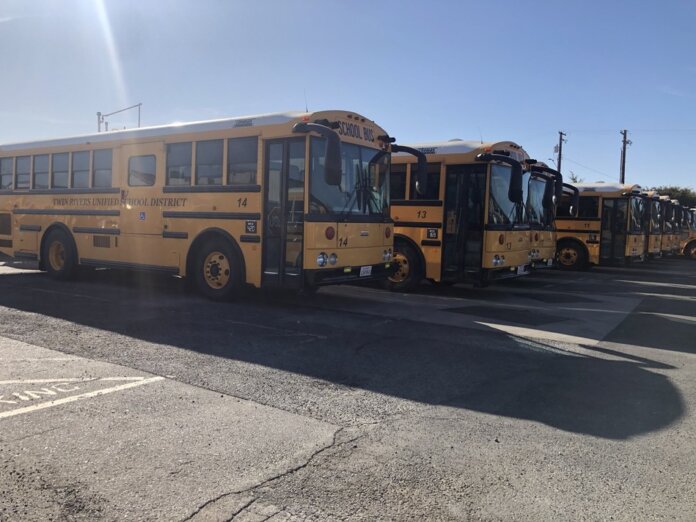The Twin Rivers Unified School District (USD), near Sacramento, Calif., is running 75 school buses on renewable diesel fuel provided by Neste.
As a result of the conversion, the district’s fleet is now fully fossil-fuel-free and one of the cleanest in the country. Because Neste MY Renewable Diesel is a drop-in fuel, Twin Rivers was able to achieve this remarkable milestone practically overnight.
“Our fleet of diesel-powered school buses were contributing to air pollution and climate change,” says Timothy Shannon, director of transportation at Twin Rivers USD. “Now, they are helping fight these two big problems. All it took for us to start creating a healthier, more sustainable future for the children and communities served by Twin Rivers was to switch from fossil to renewable diesel – probably one of the easiest decisions we’ve ever had to make.”
Twin Rivers USD, the 28th largest school district in California (26,000 students), started using electric buses last year. Now, by simply changing fuel types, Twin Rivers will realize an 80% reduction in life cycle greenhouse gas emissions from its remaining fleet of diesel-powered buses.
Neste, Van De Pol Petroleum and Twin Rivers established a long-term contract to fuel all of the diesel-powered school buses with Neste MY Renewable Diesel. Importantly, switching to renewable diesel did not cost the school district – or taxpayers – anything extra. Alongside the environmental benefits, Twin Rivers can also expect to see reduced maintenance costs.
Under normal circumstances in California, more than 25,000 school buses bring millions of students to school each day. About 65% of these vehicles run on fossil diesel – contributing to climate change and potentially exposing children to toxic emissions. Unique amongst low- and zero-emission solutions, renewable diesel fuel offers school districts a way to immediately, affordably and easily change this.
Neste’s renewable diesel fuel is made from renewable and sustainably sourced waste materials – such as used cooking oil, rendered fats and grease. These wastes come from hotels, restaurants, sports stadiums and many other venues with industrial kitchens. By collecting and converting these wastes into renewable products, Neste is creating a closed loop system that can help accelerate society’s transition away from fossil fuels.
To further enhance the environmental benefits of its renewable products, Neste has set an ambitious target to make its production operations carbon neutral by 2035. Additionally, Neste is researching and developing a new generation of raw materials that would allow for greater greenhouse gas savings – including municipal solid waste, forestry waste and even converting power to liquids.







